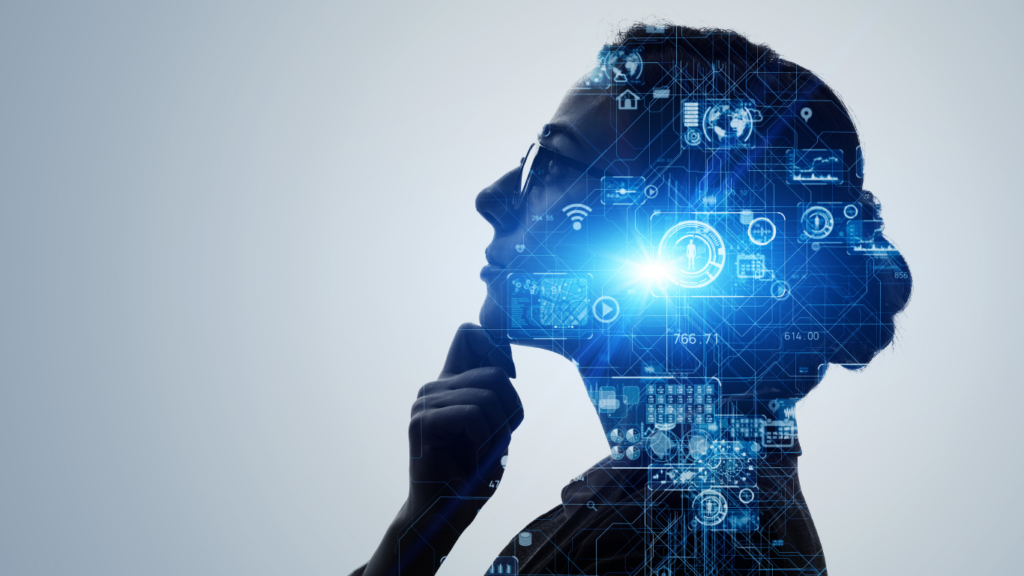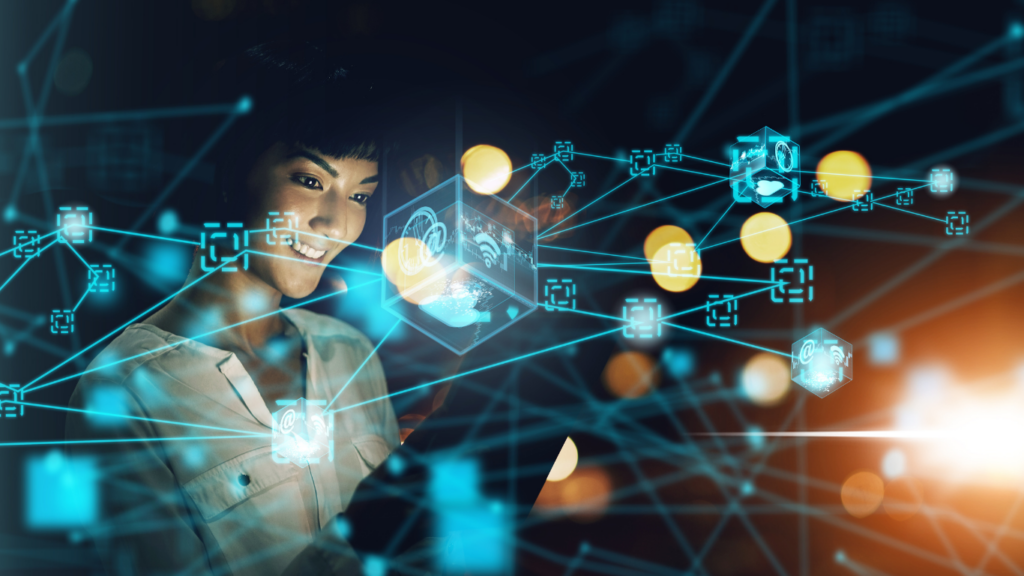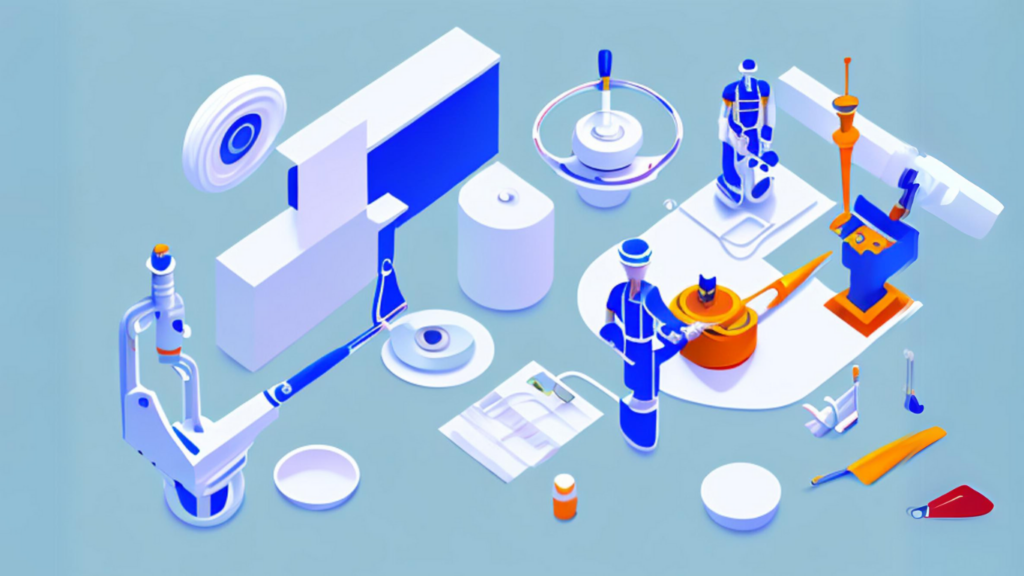In recent years, the inexorable rise of the job market has sparked legitimate concerns about its impact on employment. Will Artificial Intelligence(AI) replace humans in the workforce? What are the specific jobs that AI will replace? In this comprehensive guide, we will delve into the intricate relationship between AI and jobs, exploring the industries most affected, roles susceptible to automation, the potential for job creation, and how to prepare for the inevitable transformation brought about by the AI revolution.
Understanding the Impact of AI on Employment
To truly grasp the impact of AI on employment, it’s essential to precisely define what we mean by artificial intelligence. AI refers to the development of computer systems capable of performing tasks that typically demand human intelligence, such as speech recognition, decision-making, and problem-solving. Over time, AI has evolved, paving the way for its seamless integration into the workplace. How will jobs that AI will replace shape the future of our workforce? Let’s delve into this evolving landscape.
The evolution of AI in the workplace has been remarkable. From simple automation to sophisticated machine learning algorithms, AI has transformed industries across the board. This evolution has led to both opportunities and challenges when it comes to employment.

One of the significant opportunities that AI presents is increased efficiency and productivity. With AI-powered systems, tasks that were once time-consuming and labor-intensive can now be automated, allowing employees to focus on more complex and strategic work. For example, in the manufacturing industry, AI-powered robots can perform repetitive tasks with precision and speed, freeing up human workers to engage in more creative and innovative endeavors.
Furthermore, AI has the potential to create entirely new job roles and industries. As AI technology advances, there is a growing demand for professionals who can develop, implement, and maintain AI systems. These roles include AI engineers, data scientists, and machine learning specialists. The emergence of these job opportunities demonstrates that AI is not solely a threat to employment but also a catalyst for new career paths.
However, the integration of AI into the workplace also poses challenges for the job market. One of the main concerns is the potential displacement of human workers. As AI systems become more advanced, there is a legitimate fear that certain roles within various industries could be at risk. For instance, autonomous vehicles powered by AI technology could potentially replace truck drivers, intensifying concerns about job losses in the transportation sector. This highlights the ongoing dialogue about the impact of AI on the job market.

Another challenge is the need for upskilling and reskilling the existing workforce. As AI technology continues to evolve, employees must acquire new skills to remain relevant in the job market. This requires investments in training programs and educational initiatives to ensure that workers can adapt to the changing demands of the AI-driven workplace.
Moreover, there are ethical considerations surrounding the use of AI in employment. Issues such as data privacy, algorithmic bias, and the potential for AI systems to perpetuate existing inequalities need to be addressed. Organizations must establish robust ethical frameworks and guidelines to ensure that AI is used responsibly and does not discriminate against certain groups of people.
In conclusion, the impact of AI on employment is undeniably multifaceted. While it presents opportunities for increased efficiency, new job roles, and remarkable technological advancements, it also raises challenges such as the potential displacement of jobs that AI will replace and the pressing need for upskilling. To navigate these challenges successfully, it is crucial for organizations, policymakers, and individuals to collaborate and develop strategies that harness the benefits of AI while proactively mitigating its potential negative consequences.
The Industries Most Affected by AI
While AI has the potential to impact various sectors, some industries are more likely to be affected than others, raising questions about the specific jobs that AI will replace. Let’s explore 3 key sectors where AI is making significant strides:
AI in Manufacturing
Manufacturing is an industry that stands to benefit greatly from AI. With the ability to automate repetitive tasks and optimize production processes, AI can significantly improve efficiency and productivity. This implies that certain manual jobs in manufacturing, such as assembly line work, may be gradually replaced by AI-powered robots, reflecting the ongoing transformation of jobs that AI will replace in the industrial landscape.

However, the integration of AI in manufacturing goes beyond just automation. AI can also be used for predictive maintenance, where algorithms analyze data from sensors to identify potential equipment failures before they happen. By detecting issues early on, manufacturers can avoid costly downtime and optimize their maintenance schedules.
Furthermore, AI can be utilized in quality control processes. Machine learning algorithms can analyze vast amounts of data to identify patterns and anomalies, helping manufacturers detect defects and improve product quality. This not only reduces waste but also ensures that customers receive products that meet their expectations.
AI in Healthcare
The healthcare industry is another field where AI is making considerable advancements. From analyzing medical images to predicting disease outcomes, AI can augment diagnostic and treatment processes. This has the potential to revolutionize patient care and improve health outcomes.

One area where AI is particularly impactful in healthcare is in radiology. AI algorithms can analyze medical images, such as X-rays and MRIs, to assist radiologists in detecting abnormalities and making accurate diagnoses. This can help reduce human error and improve the efficiency of the diagnostic process.
AI can also be used for personalized medicine, where algorithms analyze patient data to tailor treatment plans based on individual characteristics. By considering factors such as genetics, lifestyle, and medical history, AI can help healthcare providers deliver more targeted and effective treatments.
However, the integration of AI in healthcare also raises ethical and privacy concerns. The use of patient data for AI algorithms must be carefully regulated to ensure patient confidentiality and prevent misuse of sensitive information.
AI in Retail
The advent of e-commerce and the popularity of online shopping have paved the way for AI’s integration into the retail industry. AI-powered chatbots, personalized recommendations, and inventory optimization algorithms are just a few examples of how AI is transforming the retail landscape.
AI chatbots can provide instant customer support, answering common queries and guiding customers through the purchasing process. This not only improves customer satisfaction but also reduces the workload for human customer service representatives.

Personalized recommendations powered by AI algorithms can analyze customer data, such as purchase history and browsing behavior, to suggest products that are likely to be of interest. This enhances the shopping experience for customers and increases the likelihood of making a sale.
Inventory optimization is another area where AI can have a significant impact. By analyzing historical sales data and external factors like weather and trends, AI algorithms can help retailers optimize their inventory levels. This reduces the risk of overstocking or understocking, leading to improved profitability and customer satisfaction.
However, the integration of AI in retail also poses challenges. The reliance on AI for customer interactions may lead to a loss of the human touch that some customers value. Additionally, the use of AI algorithms for pricing optimization may raise concerns about fairness and transparency.
Specific Jobs at Risk of AI Replacement
While AI may not replace entire industries, it’s evident that certain roles within those industries are more vulnerable to automation, emphasizing the concern about the impact on the job market. Let’s explore a few specific jobs that are at risk, highlighting the evolving landscape of the job market in the age of artificial intelligence.
Administrative Roles and AI
Administrative roles, including data entry and basic record-keeping, are likely to be automated by AI. Leveraging the ability to process vast amounts of data quickly and accurately, AI algorithms can streamline administrative tasks. This transition raises questions about the future of jobs that AI will replace in the administrative sphere, freeing up human workers for more complex and strategic responsibilities.
Transportation Jobs and AI
The transportation industry is on the verge of a significant disruption due to advancements in AI technology. Self-driving cars and trucks have the potential to revolutionize transportation, raising concerns about jobs that AI will replace, particularly in driving roles. While the complete replacement of human drivers may still be years away, it’s essential for those in the industry to adapt to the changing landscape and anticipate the evolving nature of their roles.
AI and Customer Service Roles
Customer service is another field that is experiencing substantial AI-driven changes. AI-powered chatbots and virtual assistants can now provide instant and personalized customer support around the clock. While this innovation can undoubtedly improve efficiency and enhance the overall customer experience, it also raises concerns about the future of jobs that AI will replace in the customer service sector, potentially leading to a decrease in human customer service roles.
Read more: Cognitive Computing: AI and Human Collaboration Ahead
The Role of AI in Job Creation
While AI has the potential to replace certain roles, it also has the capacity to create new opportunities within the job market. Here, we will explore how AI contributes to both job transformation and creation, shaping a dynamic landscape for employment in various industries.

New Jobs Created by AI
As AI technology advances, new jobs will emerge to support its development, implementation, and maintenance. Roles like AI trainers, data scientists, and AI ethics specialists will become increasingly important in the AI ecosystem. These new jobs require a combination of technical expertise and creative problem-solving skills.
Skills Needed for AI-Driven Jobs
In the evolving job market, acquiring the right skills becomes paramount, especially in AI-driven roles. AI-driven jobs often demand a mix of technical abilities, adaptability, and critical thinking. Skills such as programming, data analysis, and collaboration will be highly valued in the AI era and contribute to success in the job market. By upskilling and reskilling, individuals can effectively position themselves for success in the AI-driven job market.
Preparing for the AI Revolution
The AI revolution is upon us, and it’s crucial to prepare for the changes it brings, especially regarding the transformation of jobs that AI will replace. Here are some strategies to embrace the AI revolution and navigate the evolving landscape of the workforce:

Upskilling and Reskilling
To adapt to the evolving job market and the imminent changes in jobs that AI will replace, individuals need to invest in continuous learning. Upskilling and reskilling enable professionals to acquire new skills and broaden their capabilities, making them more valuable in the AI era. Lifelong learning and staying updated with the latest technological advancements are essential strategies for thriving in the rapidly changing landscape of the workforce.
Embracing Technological Change
Embracing technological change is crucial in the evolving job market. Rather than fearing AI, it’s important to embrace the transformation of jobs that artificial intelligence will replace. AI has the potential to enhance human capabilities and create new opportunities within the job market. By staying open and adaptable, individuals and organizations can navigate the changing landscape, leveraging the full potential of AI and shaping a future where man and machine work synergistically for greater innovation and productivity.
Conclusion
In conclusion, the impact of AI on employment is undeniably substantial. While certain jobs are at risk of being replaced by AI, there is also the potential for new job creation. By comprehending the industries most affected, specific roles at risk, the role of AI in job creation, and preparing for the AI revolution, individuals can strategically position themselves for success in the AI-driven job market. Ultimately, the key lies in adapting, upskilling, and embracing the potential of AI to thrive in the future of work and the changing dynamics of jobs that AI will replace.


